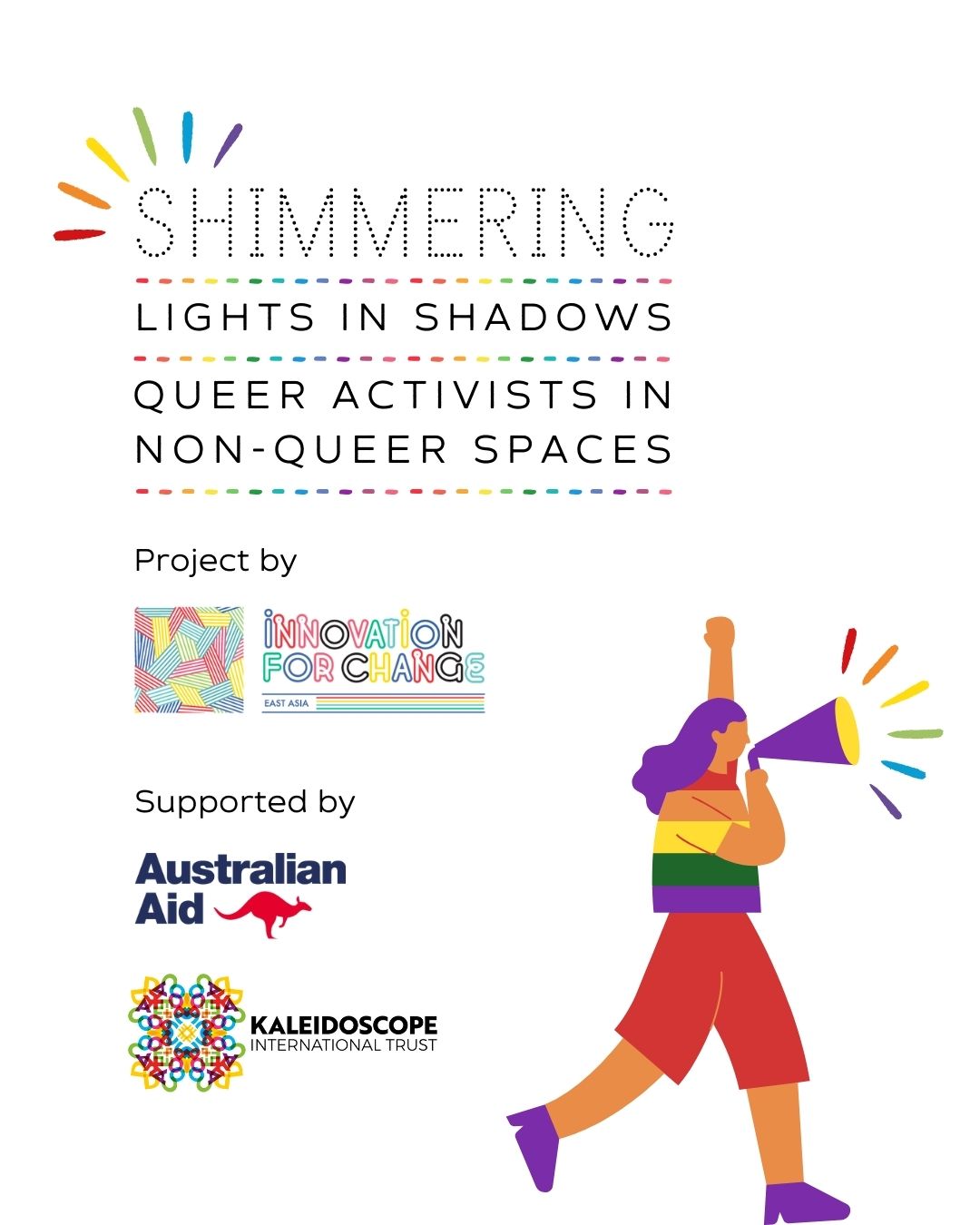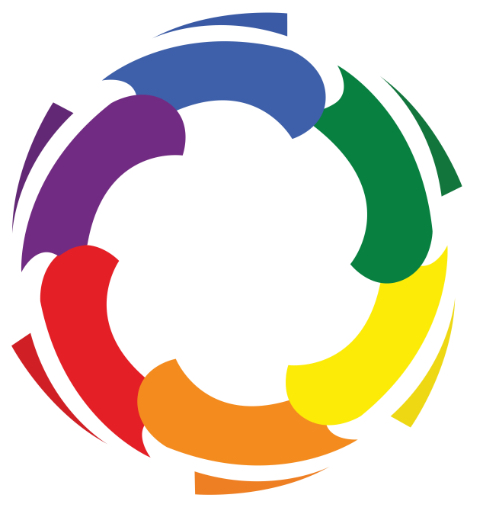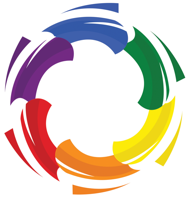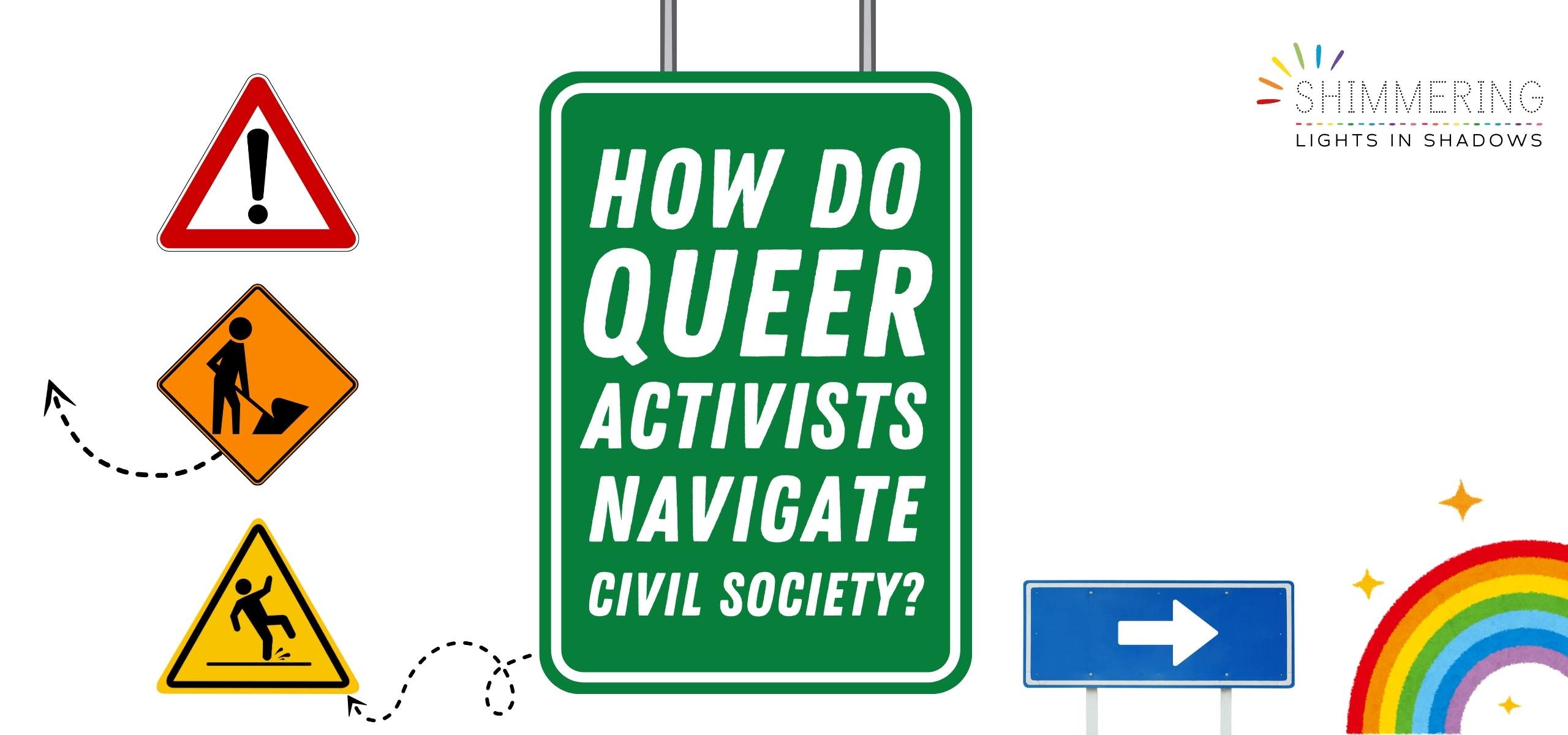
“I still wonder and dare not ask how far my organisation will support me as a queer person.”
Navigating civil society as a queer activist requires a constant balancing act. Many adapt by finding ways to safely express themselves while navigating societal expectations. As Marissa de Guzman explains, “LGBTQIA+ activists feel the need to navigate, code-switch, compartmentalise, or hide parts of who they truly are… to live secret, silent, and partly invisible lives.”
Even within these constraints, resilience and adaptability shine through. As Jo reflects, “We are hiding who we are, and we are supporting who we can.” This quiet solidarity exemplifies the strength queer activists bring to civil society as they carve out spaces for inclusion and progress.
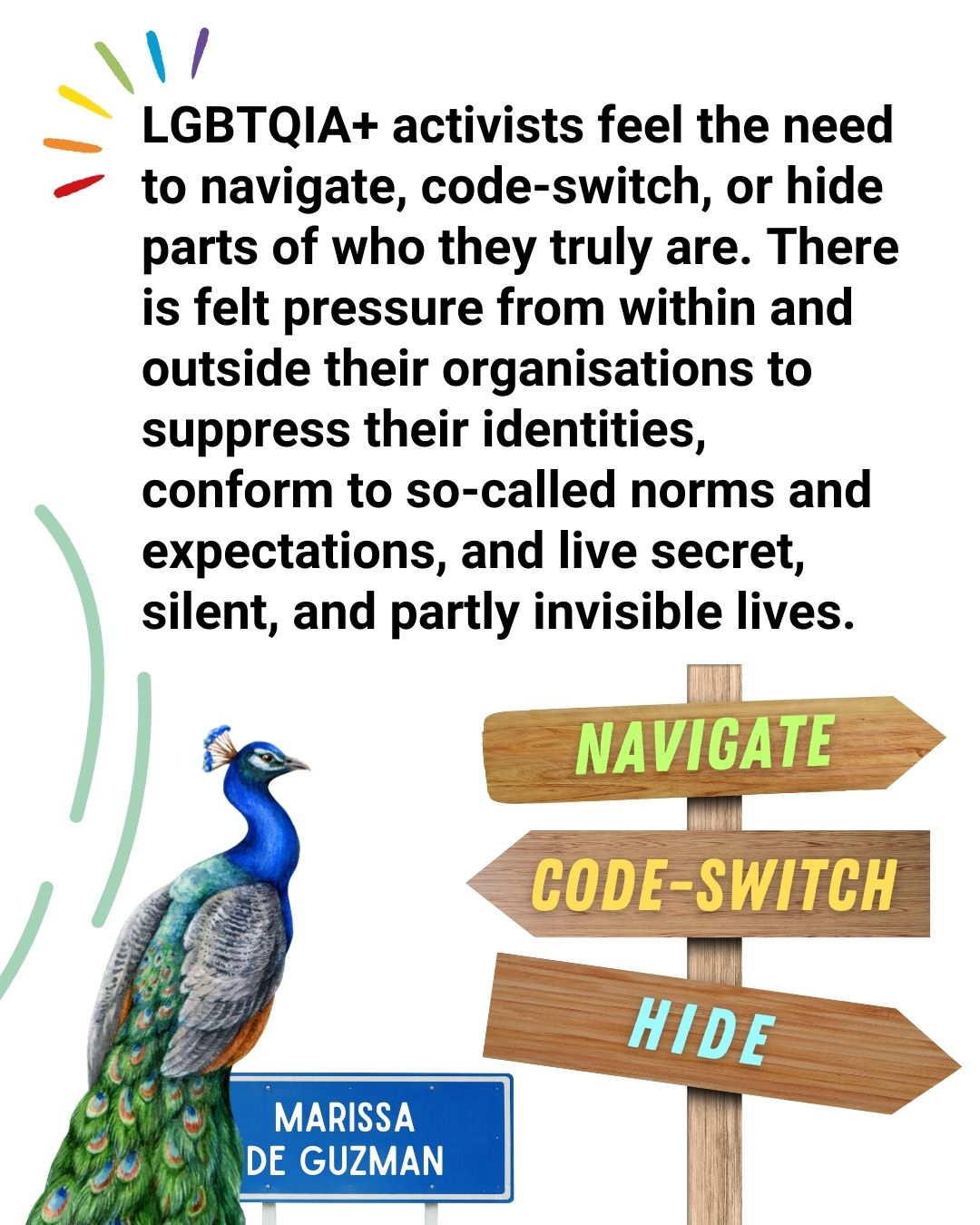
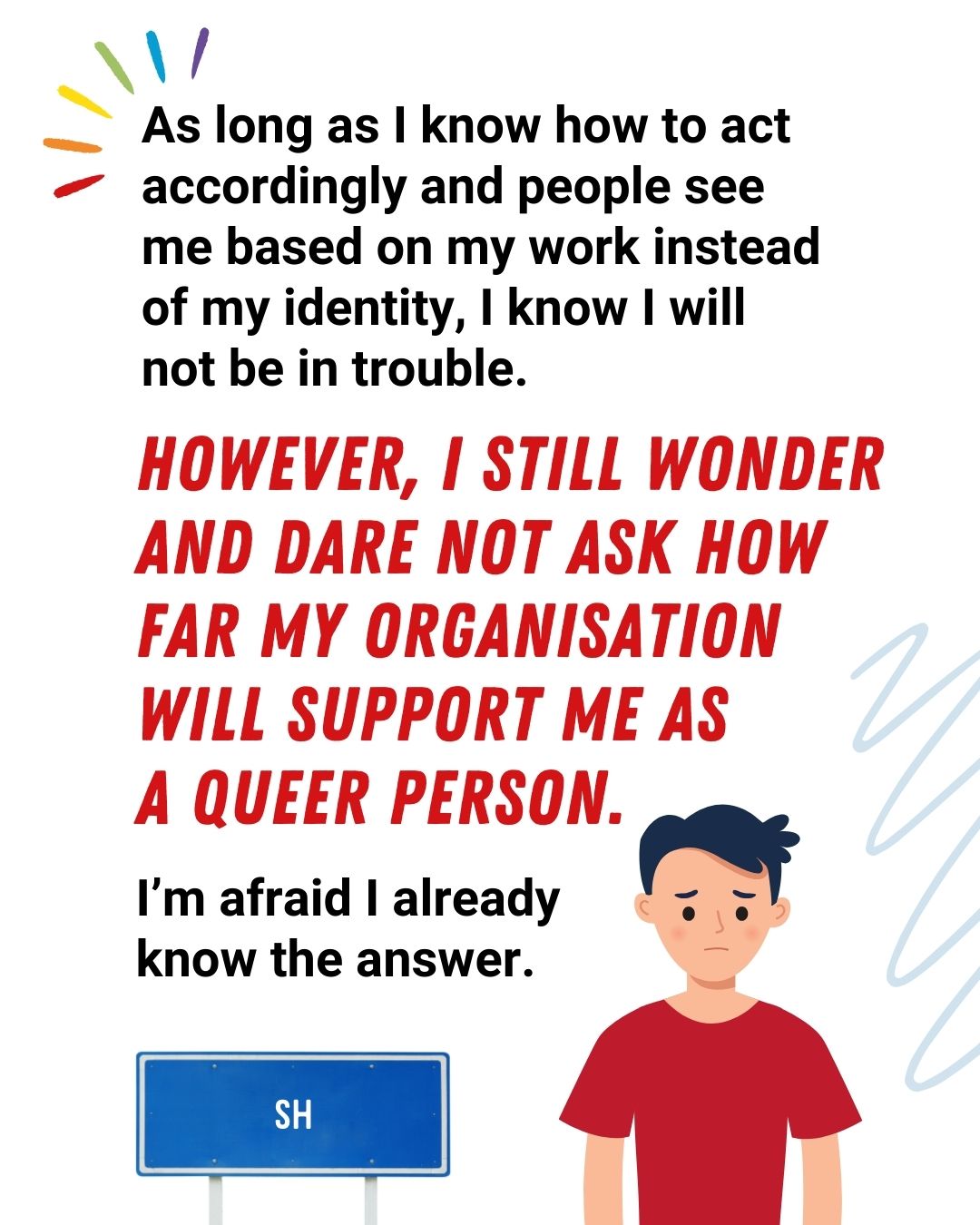
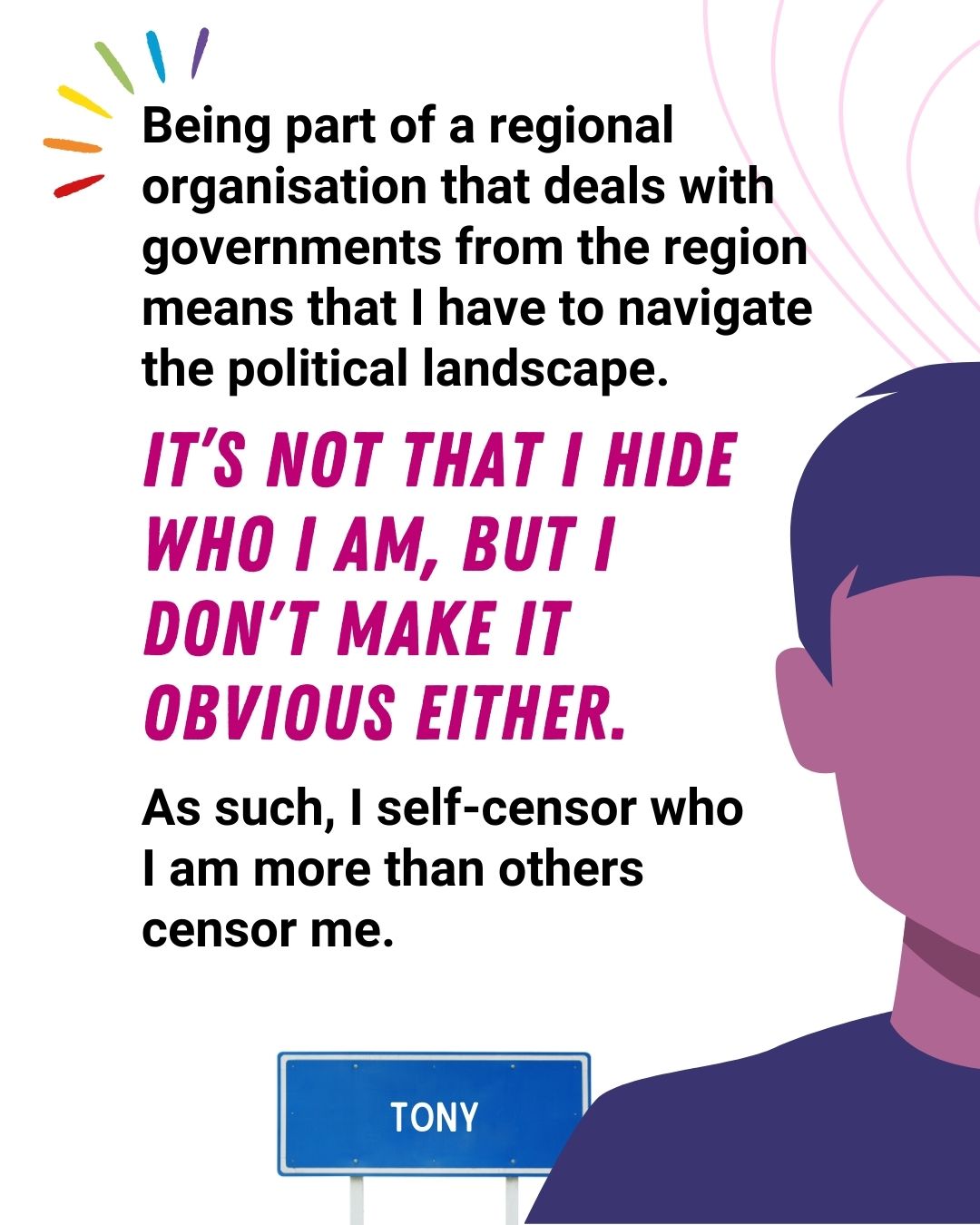
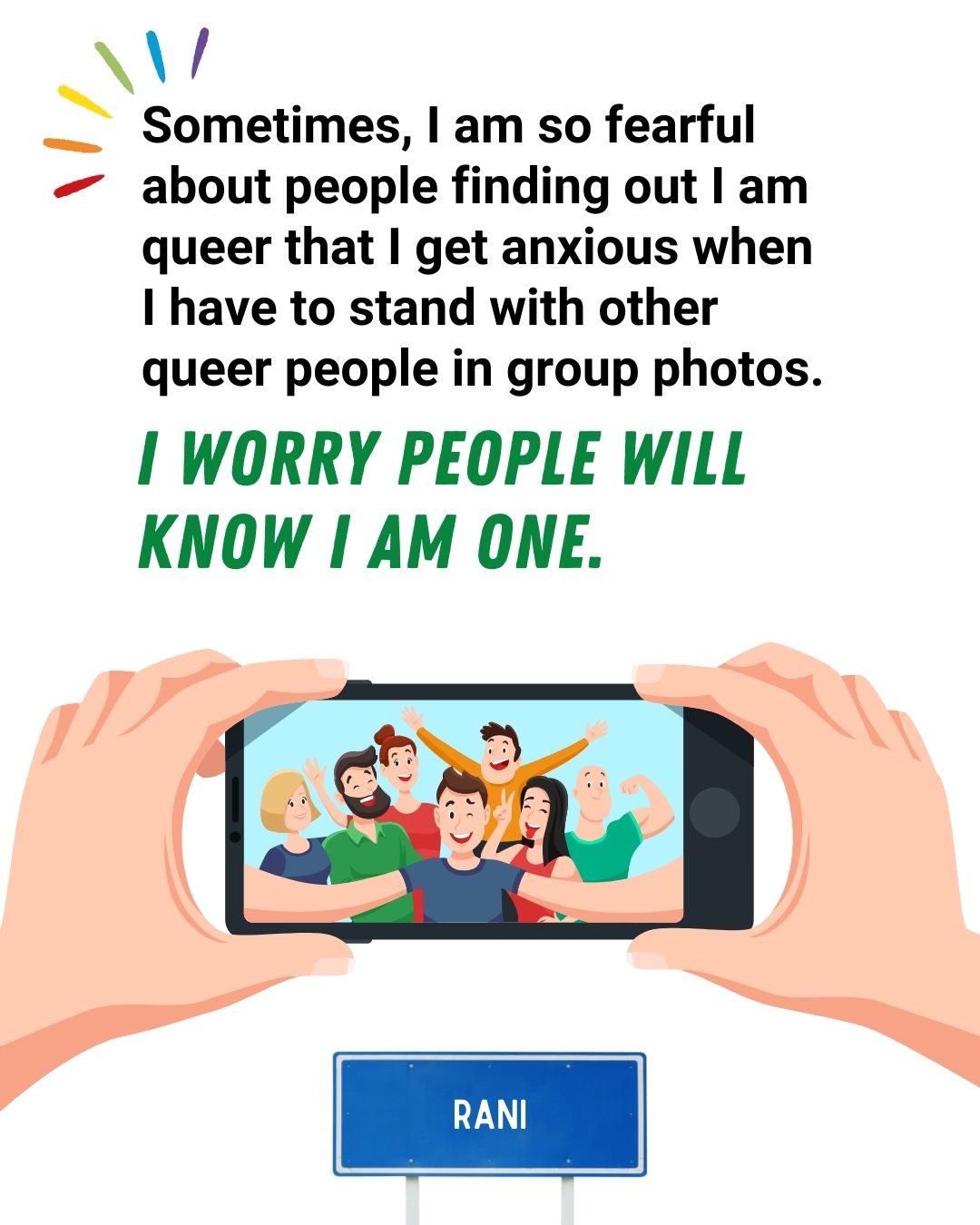
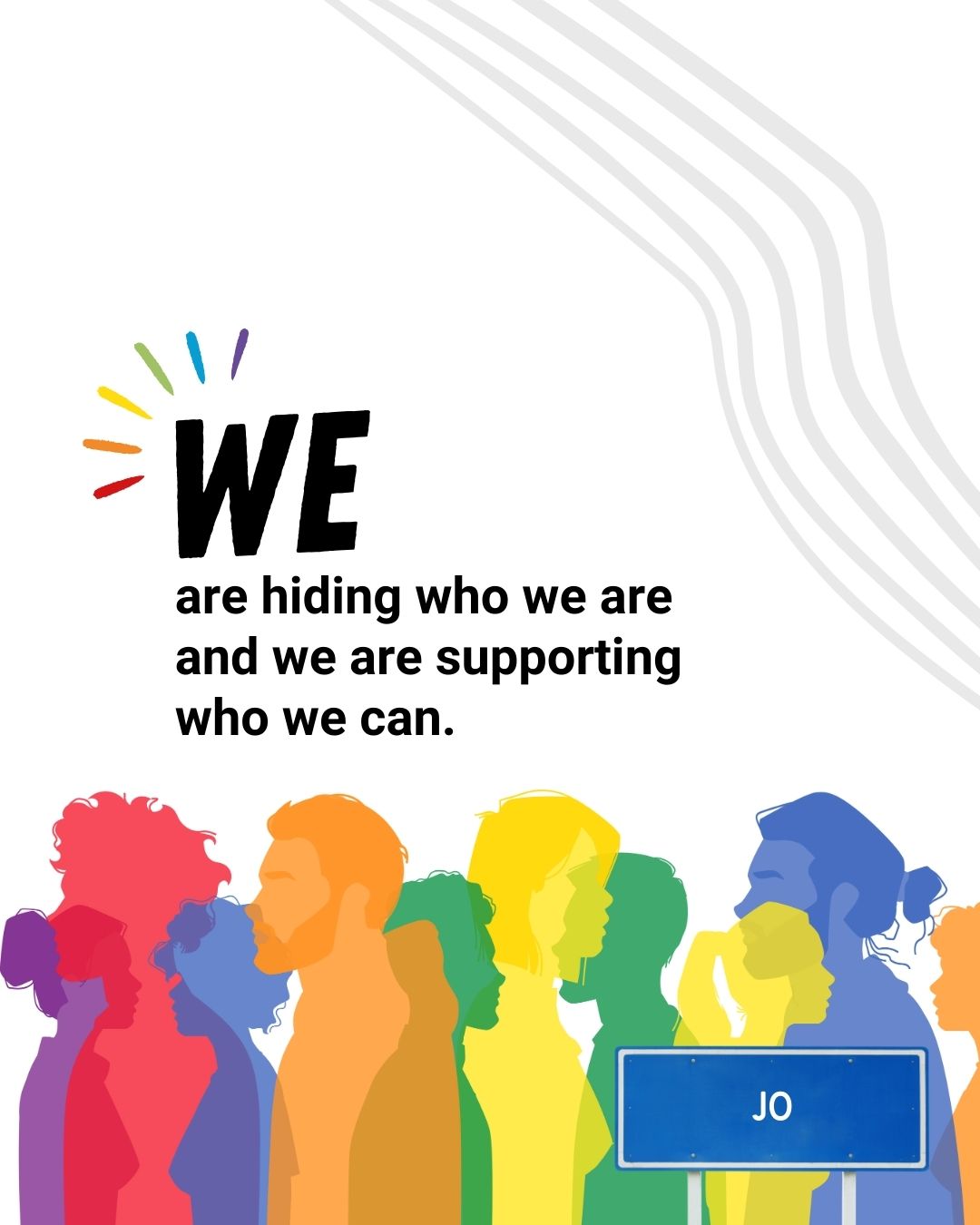
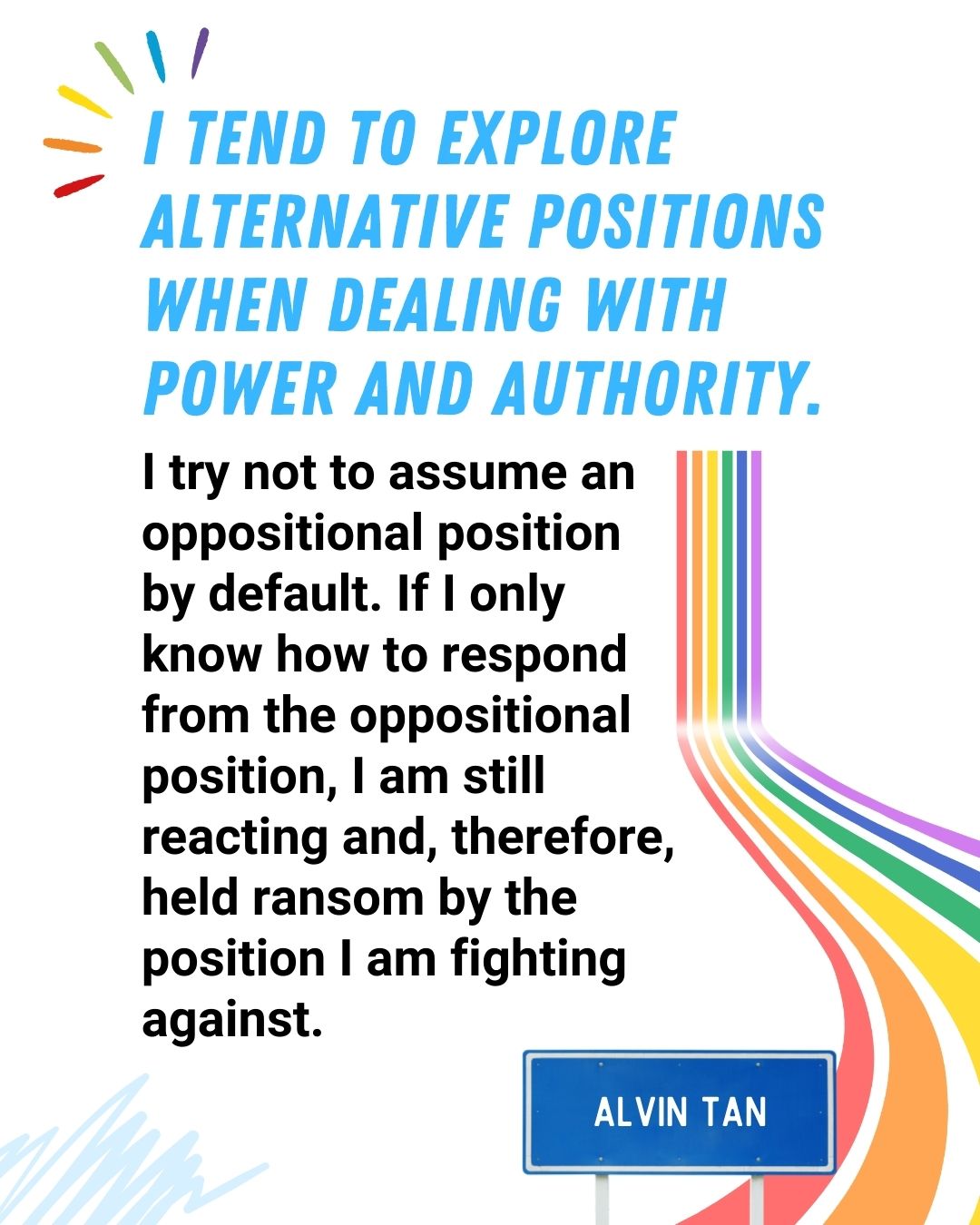
These quotes are by participants of our report “Shimmering Lights in Shadows: Queer activists in non-queer spaces”. It explores the lived experiences of 47 LGBTQIA+ individuals involved in civil society organisations across Brunei, Fiji, Malaysia, and Singapore. You may access the reports through ASEAN SOGIE Caucus or Asia Democracy Network.
Being Queer in the Work Sphere
Excerpt from the Synthesis Report by Marissa de Guzman
Queer individuals, however, have to rely on their life-taught survival skills when they find themselves in organisations with no clear policies and no culture that respects diversity and equality for all. Where leadership within the organisations fails to set the tone for acceptance or where conservative values are also compounded by both policy and funding restrictions tied to towing heteronormative principles and practices, LGBTQIA+ activists feel the need to navigate, code-switch, compartmentalise, or hide parts of who they truly are. In such circumstances, still present today in the four focus countries, there is felt pressure from within and outside the organisations for the queer people to suppress their identities, conform to so-called norms and expectations, and live secret, silent, and partly invisible lives. Bruneian participants talk about the constant battle between their desire for authenticity and the professional need to comply with what society expects and demands. A Fijian participant talked about the need to navigate the workplace, and the political landscape associated with their work. Reputational risk, both for the queer individual and the organisation, is an important factor to consider when the need to hide parts of their identity determine their ability to maintain job security. Navigating dual identities is also common, especially when the work focuses on gender rights and the queer activist is faced with the reality of having to hide their own identities while promoting others’. A Malaysian participant cited a tendency to feel invisible and unsupported when there is a disconnect between policy and practice within organisations, including those that pose to be queer affirming. There are also some who are uncomfortable joining queer CSOs depending on the level of their outness and the fear involved in being outed.
Some participants talk about CSO work cultures that provide a sense of security despite the absence of policies on anti-discrimination or abuse. Where no gender policies are in place and where acceptance may not be explicitly expressed but silently felt, the spaces for safe conversations and engagement with colleagues in the workplace are quietly negotiated too. “Don’t ask, don’t tell” becomes the operative dynamics for some. For others, it seems that not having an explicit policy supporting LGBTQIA+ activists’ rights and identities is acceptable as long as there is also no explicit policy on discrimination or abuse based on SOGIESC.
CSOs in Fiji supposedly have internal gender policies and gender training is made available to staff. In practice, however, the policies do not result in better treatment of queer activists. Policies are not reflected in the actual practices, and neither are they enforced. Challenges in the workplace as well as in Fijian society, in general, expose queer activists to a heightened risk of burnout. “Sometimes I feel like I’m burned out because of the work that my NGO does. It’s very revolutionary and I like being there, but sometimes, the work also gets to me.”
Malaysian contributors talked about the compounding burden posed by having to navigate and negotiate between their identities and their work – especially where both personal and organisational risks are involved. Hiding parts of who you are may sometimes be necessary to push advocacies forward or gain support. This form of self-censorship results in work-related stress where the queer activist bears the cost of protecting the interests of the organisation. Navigation as a strategy drives queer activists into a constant state of vigilance – of always being conscious and cautious – and it may also impact queer peoples’ mental health. “However, there seems to be a desire from queer activists that their organisations acknowledge this labour, trust them to navigate, and support them through it.”
For the Singaporean queer activists, navigation, in and of itself, can be stressful and exhausting. But once regarded as a unique contribution to the queer activist’s tactical toolkit, especially within repressed or closed civic spaces, the navigational skill becomes an asset and an offering.
Something that uniquely came up in the Singapore report is negotiation as a survival strategy between and among CSOs. Tensions arise when single-issue CSOs push for policies benefiting their primary thematic focus, while possibly sidelining other civil or political rights that may impact other organisations’ advocacies. Tensions within the workplace or even between and among CSOs are not new, not even surprising. But these tensions exist, and they need to be acknowledged if we are to find a workaround that serves the best interests of all stakeholders.
You may access the Synthesis Report through ASEAN SOGIE Caucus or Asia Democracy Network.
